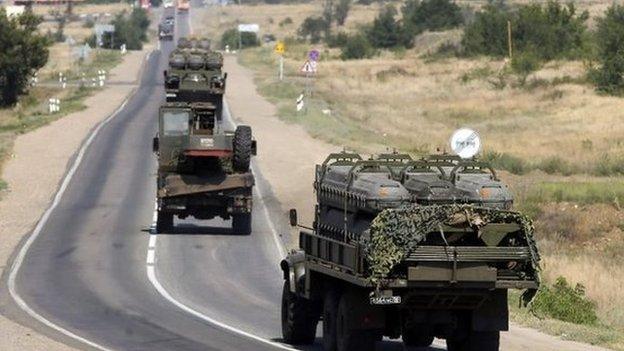China-Russia drills in Med show shifting strategies
- Published
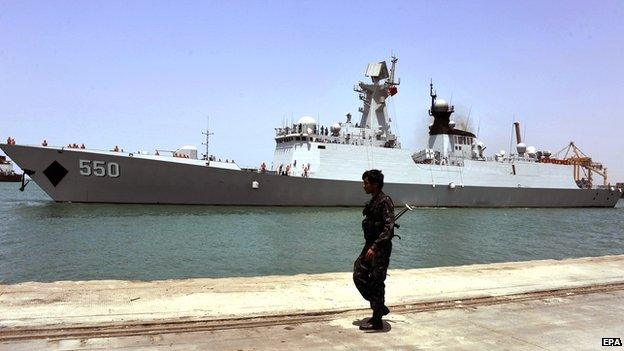
The Russian and Chinese navies have begun their first joint exercises in the Mediterranean that will last for about a week.
Though small scale, it is a signal of growing defence ties between Beijing and Moscow and a demonstration that China's maritime horizons are broadening.
Two Chinese 054A/Jiangkai II class missile frigates - the Linyi and the Weifang - are involved along with a supply vessel, the Weishanhu.
Some six Russian ships are also taking part, and the exercises will encompass safety drills, replenishment at sea, escort missions and some live firing.
The Chinese warships had previously visited the Russian Black sea base of Novorossiysk (another first for the Chinese navy) as part of the Victory in Europe celebrations.
Fresh focus
Over recent years, Russia has been seeking to restore its naval presence in the Mediterranean, which largely lapsed at the end of the Cold War.
It retains a small foothold in the Syrian port of Tartus. Its limited facilities there are supposedly being modernised, though much depends upon the fate of Moscow's ally - Syrian President Bashar al-Assad.
More vessels are also being designated for Mediterranean operations.
China, unlike Russia (and the former Soviet Union), has traditionally not seen the Mediterranean as an area of strategic concern. But over recent years, its importance to Beijing has increased markedly.
China's growing economic role in the region and the importance of securing shipping lanes for its trade have given the Chinese a new focus.
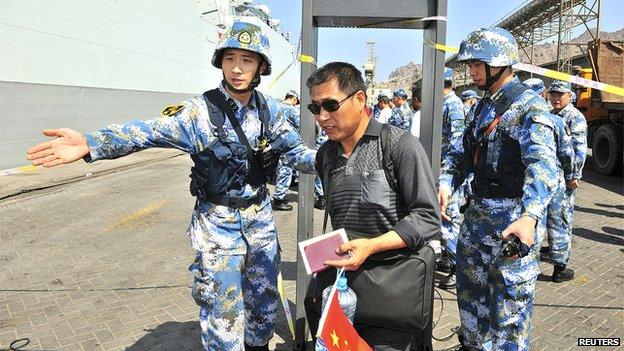
China has had to use its navy to evacuate citizens caught up in regional upheavals
Indeed the vessels that China is contributing to the exercise have already been engaged in multinational anti-piracy patrols in the Gulf of Aden.
And twice in recent years, China has had to use its navy to evacuate citizens caught up in the region's upheavals.
Earlier this year, Chinese ships helped pick up several hundred Chinese workers from Yemen, and a similar operation was mounted in Libya in 2011 for thousands of Chinese nationals.
Strategic theatre
Beyond serving narrow economic interests, operations like that in the Gulf of Aden provide an opportunity to demonstrate China's desire to play a greater role on the international stage.
Only last week, Djibouti announced that China was seeking to establish a small base there alongside facilities operated by the US, France and even Japan.
The joint exercise also provides a timely opportunity for Moscow to show off the developing Sino-Russian defence relationship.
At a time when Nato has stepped up a variety of exercises around Russia's periphery as a response to the Kremlin's actions in Ukraine, Russia's own armed forces have increased their activity too.
So this exercise should be seen as a bit of strategic theatre as well, just like the repeated incursions of Russian bombers and submarines into western airspace and waters.
China of course insists that these exercises are not directed against anyone in particular.
And it is clear that while China and Russia's defence relationship is important to both countries, China does not want to get drawn into the so-called "cool war" between Russia and the West.
- Published9 May 2015
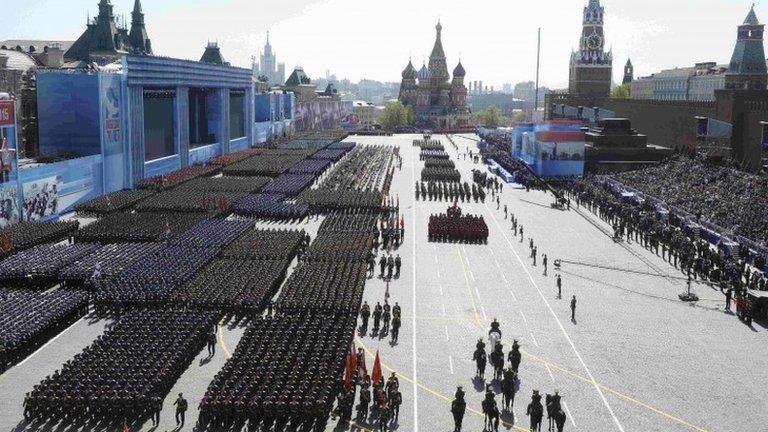
- Published2 May 2015
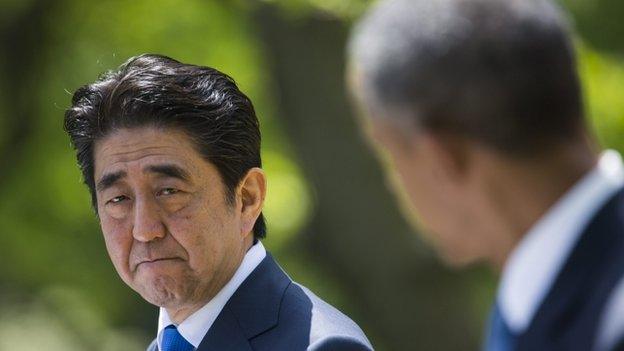
- Published2 September 2014
